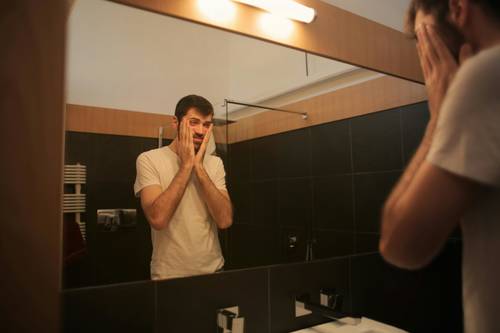Understanding Low Testosterone
Do you have low testosterone? We may be able to help! Many men experience low testosterone levels and it is normal for these levels to decrease as we age, however, due to multiple factors these levels are declining at a younger age and at a much faster rate. Many health factors play a role in lower testosterone levels and you may be surprised to learn that almost 1 in every 4 men over the age of 30 have low testosterone levels, roughly affecting more than 13 million men in the United States.
It’s crucial to recognize the signs and symptoms of low testosterone to seek proper diagnosis and treatment.
Let’s dive into some of the most common signs:
-
Erectile dysfunction
Testosterone is essential for achieving and maintaining erections, so a decrease in its levels can result in difficulty getting or sustaining an erection. ED can significantly impact self-esteem and intimate relationships, highlighting the importance of addressing the underlying hormonal imbalance.
-
Decreased libido or interest in sex
Testosterone plays a crucial role in regulating sexual function in men. Therefore, a noticeable decline in libido or sex drive can be a significant indication of low testosterone levels. Men experiencing this symptom may find themselves disinterested in sexual activity, which can strain relationships and lead to emotional distress.
-
Infertility
Testosterone plays a vital role in spermatogenesis, the process of sperm production in the testes. Optimal testosterone levels are necessary for the development and maturation of sperm cells. When testosterone levels are low, it can disrupt this delicate balance, leading to reduced sperm production, poor sperm quality, and impaired fertility.
-
Rapid hair loss
While some degree of hair loss is natural with age, excessive shedding or balding can be a sign of low testosterone. Testosterone contributes to hair production and maintenance, so a decline in its levels can result in thinning hair or bald patches. Addressing the underlying hormonal imbalance may help slow down or reverse hair loss in affected individuals.
-
Reduced muscle mass
Testosterone is vital for maintaining muscle mass and strength in men. Therefore, individuals with low testosterone levels may experience a decrease in muscle mass, accompanied by weakness and fatigue. This loss of muscle can also lead to weight gain and changes in body composition.
-
Increased body fat
Testosterone plays a crucial role in regulating metabolism and fat distribution in the body. When testosterone levels decline, individuals may experience a shift in body composition, leading to an increase in body fat, particularly around the abdomen.
-
Sleep disturbances
Testosterone production follows a natural circadian rhythm, with levels typically peaking during sleep. Consequently, disturbances in sleep patterns can disrupt this hormonal balance and contribute to low testosterone levels.
-
Fatigue
One of the earliest signs of low testosterone is persistent fatigue and reduced energy levels. Men may find themselves feeling constantly tired, even after a full night's rest. This exhaustion can impact daily activities, affecting productivity and overall quality of life.
-
Depression
Hormonal imbalances, such as low testosterone, can affect mood regulation and mental well-being. Men with low testosterone levels may experience mood swings, irritability, or feelings of depression. Addressing the hormonal imbalance through proper treatment can help alleviate these emotional symptoms and improve overall mental health.
Do any of these symptoms sound familiar? Take our ADAMS Questionnaire to see if you might qualify.
There are some factors which contribute to low testosterone levels:
- High cholesterol levels
- High blood pressure
- Diabetes
- Obesity
- Drug use such as opioids and marijuana
- Alcohol
- Certain medications
- Sedentary lifestyle
- Poor diet
Testosterone therapy is safe and effective. Here at PNW Optimal Health we can assess your symptoms, review your labs, and get you started down a path of feeling better!
For more information on TRT: Urology Health Foundation
Posted April 10, 2024

